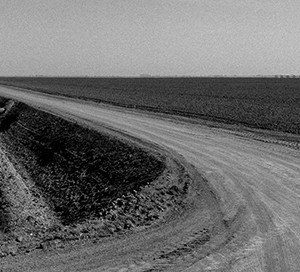Federal Water Tap, March 2: Bureau of Reclamation Will Release No Irrigation Water to Central Valley Farmers
The Rundown
No canal water for Central Valley farmers. House passes bill responding to toxic algae crisis. Michigan representatives target invasive Asian carp while California senators aim to help clean up the San Francisco Bay. The U.S. Supreme Court issues ruling in Kansas v. Nebraska. Rural communities struggle to finance water system improvements.
“We cannot afford to take a cavalier approach when it comes to protecting our Great Lakes from Asian carp. This destructive species is quickly migrating north, destroying nearly every ecosystem along the way.” — Congresswoman Candice Miller (R-MI) on the bipartisan bill she introduced with Senator Debbie Stabenow (D-MI) to implement measures to prevent Asian carp from gaining a fin-hold in the Great Lakes.
By the Numbers
$US 5.5 million: Money that Nebraska will pay Kansas to settle a water dispute in the Republican River Basin (U.S. Supreme Court)
$US 8 million: Funding for Native American tribes to plan for climate change and better manage coastal erosion (Department of the Interior)
News Briefs
California Drought Cuts Irrigation Water
Farmers in California’s Central Valley face an unprecedented water shortage. For the second consecutive year the San Joaquin Valley, home to six of the nation’s seven most productive farming counties by sales, will get no water from canals managed by the Bureau of Reclamation. Two straight years of a “zero allocation,” as the determination is known, has never happened.
Kansas v. Nebraska
Both sides can claim victory in a U.S. Supreme Court ruling over water use in the Republican River Basin. Nebraska must pay Kansas $US 5.5 million for using more water than it was allocated by the compact that governs the river. Nebraska, in turn, will benefit from a rejiggering of the formula used to determine water consumption. The ruling followed the recommendations of a special master who was appointed to oversee the case. This was the second time in less than a decade that the two states appeared before the high court over the Republican River, which is used heavily for irrigation.
Toxic Algae
The House of Representatives by a vote of 375 to 37 passed a bill that will require the U.S. Environmental Protection Agency to address toxic algae in drinking water. Sponsored by Bob Latta, an Ohio Republican whose state borders algae-plagued Lake Erie, the bill is broad. It requires the EPA to assess the danger to human health from toxic algae, offer guidance for monitoring outbreaks, and recommend treatment technologies and practices that will reduce algal blooms.
Asian Carp Bill
Senator Debbie Stabenow (D-MI) and Congresswoman Candice Miller (R-MI) introduced a bill to halt the spread of Asian carp in the Great Lakes. Earning bipartisan support from the Great Lakes delegation, the bill orders the U.S. Army Corps of Engineers and other agencies to implement recommendations from a 2014 task force. Among the recommendations: adding electric, acoustic, and physical barriers to the canals that connect the Mississippi River Basin, where the carp live, and the Great Lakes, which are home to a $US 7 billion sportfishing industry and to many critters that the carp would like to eat.
Rural Water Challenges
Water systems that serve fewer than 3,300 people face a particular gauntlet of hurdles, a panel of witnesses told the House Energy and Commerce Committee on February 27. Some 90 million people get drinking water from these systems, according to the EPA.
Small communities often have limited ability to raise funds through the municipal bond market, said J. Alfredo Gomez of the U.S. Government Accountability Office, a federal watchdog. Without bond funds these towns rely on federal grants, subsidized loans, and cash raised from water rates.
They also lack technical expertise and lean on consultants for designing new water and sewer projects, Gomez said. In January, President Obama issued a memo to federal agencies requesting that they allocate more grant money for project planning.
San Francisco Bay Restoration
Senator Dianne Feinstein (D-CA) introduced a bill to authorize $US 25 million over five years to clean up the San Francisco Bay. The grants would require local government agencies or nonprofits to cover 25 percent of a selected project’s cost.
On the Radar
California Water Management
The Bureau of Reclamation published water management plans for 10 cities or agencies that receive federal water through the Central Valley Project. The bureau is taking public comments on its preliminary approval of the plans. Send comments to aanderson@usbr.gov by March 30.
Congressional Hearings
On March 4, the Senate Environment and Public Works Committee will hear from EPA Administrator Gina McCarthy about the agency’s fiscal year 2016 budget request.
On March 4, the House Energy and Commerce Committee will hold a hearing on a secure, reliable, modern electricity system.
On March 5, Interior Secretary Sally Jewell will discuss the department’s budget request with the House Natural Resources Committee.
Federal Water Tap is a weekly digest spotting trends in U.S. government water policy. To get more water news, follow Circle of Blue on Twitter and sign up for our newsletter.
Brett writes about agriculture, energy, infrastructure, and the politics and economics of water in the United States. He also writes the Federal Water Tap, Circle of Blue’s weekly digest of U.S. government water news. He is the winner of two Society of Environmental Journalists reporting awards, one of the top honors in American environmental journalism: first place for explanatory reporting for a series on septic system pollution in the United States(2016) and third place for beat reporting in a small market (2014). He received the Sierra Club’s Distinguished Service Award in 2018. Brett lives in Seattle, where he hikes the mountains and bakes pies. Contact Brett Walton




Leave a Reply
Want to join the discussion?Feel free to contribute!